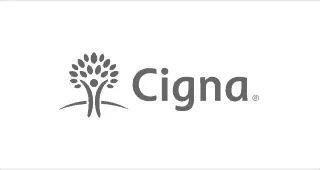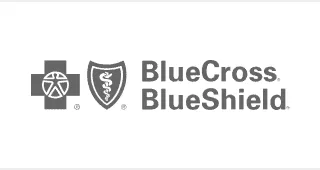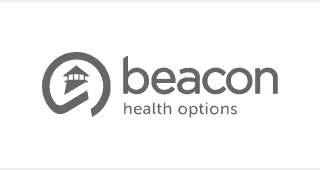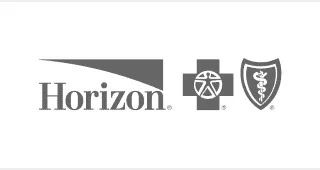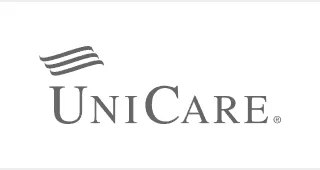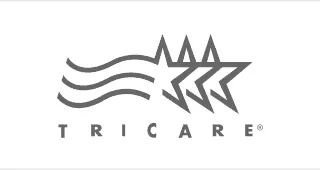Achieve Wellness and Recovery stands out among New Jersey’s rehab centers, offering a safe and compassionate environment for individuals seeking addiction treatment services. We are dedicated to addressing both the physical and mental aspects of alcohol and drug addiction. Our experienced professionals collaborate closely to ensure you receive the highest level of care.
What is Substance Abuse?

Substance abuse is a topic that demands understanding and empathy, as it touches the lives of so many seeking answers and solutions. In essence, substance abuse refers to the harmful or hazardous use of psychoactive substances, including alcohol and drugs. Substance abuse takes many forms, from alcohol addiction to drug dependency.
Substance abuse is a complex and challenging issue affecting countless individuals and families in New Jersey and beyond. At Achieve Wellness and Recovery, we understand the profound impact of addiction on your life, and we are here to provide the best possible support on your journey to recovery.
Signs and Symptoms of Substance Abuse
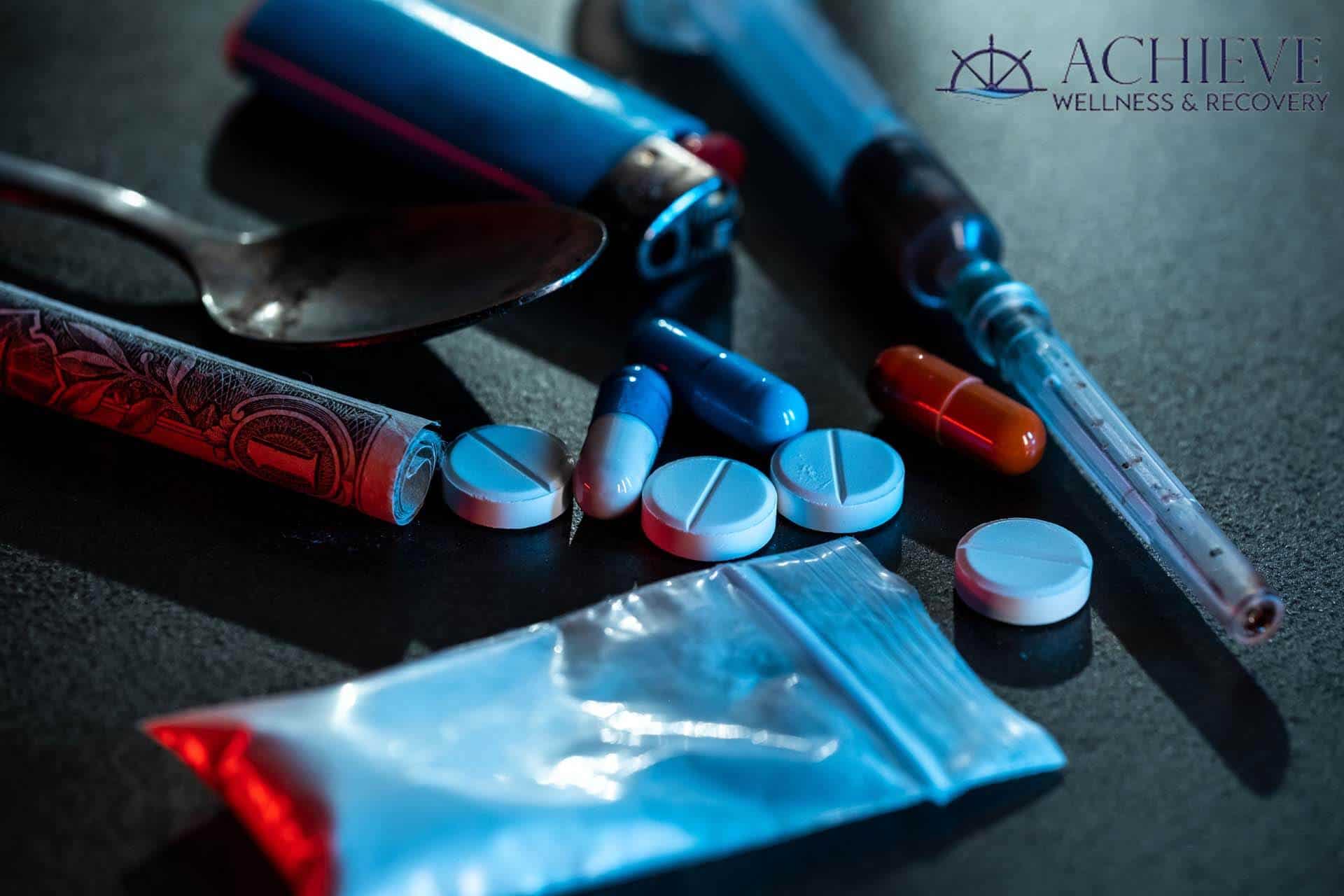
One of the common signs of substance misuse or abuse is a noticeable change in behavior and mood. Individuals struggling with alcohol and drug addiction may exhibit erratic behavior, experience frequent mood swings, and withdraw from social activities.
Another sign to be aware of is the increasing tolerance to drugs or alcohol. As addiction progresses, individuals often require higher doses to achieve the desired effect. This can lead to a dangerous cycle of dependence.
Withdrawal symptoms are a clear indication of addiction. When individuals try to abstain from substance use, they may experience physical and psychological discomfort.
Withdrawal Symptoms

Withdrawal can be a challenging aspect of the recovery journey from substance abuse and addiction. Here’s an overview of common symptoms and how our addiction treatment centers can help:
Nausea and Vomiting: Many people going through withdrawal from drugs or alcohol may experience persistent nausea and, in some cases, vomiting. This can be physically and emotionally taxing.
Sweating and Chills: Profuse sweating combined with chills or cold sweats are common symptoms. The body struggles to regulate temperature without the substance.
Muscle Aches and Pains: Pain in muscles and joints is another discomfort associated with withdrawal. It can make even simple movements painful.
Headaches: Withdrawal often brings on intense headaches, which can range from mild to severe, causing significant discomfort.
Anxiety and Restlessness: Many individuals experience heightened anxiety and restlessness during withdrawal. This can lead to sleep disturbances and increased stress.
Depression and Mood Swings: Feelings of sadness and mood swings are common. The brain’s chemistry is adjusting, leading to emotional instability.
Intense Cravings: Strong cravings for the substance are a hallmark of withdrawal. These cravings can be overwhelming and contribute to the risk of relapse.
Insomnia: Sleep disturbances, including difficulty falling asleep and staying asleep, can exacerbate other symptoms.
Hallucinations and Delusions: In some cases, withdrawal from certain substances can lead to hallucinations and delusions, which require immediate medical attention.
Tremors and Seizures: Severe withdrawal from alcohol or specific drugs can lead to tremors and, in extreme cases, seizures, which are considered medical emergencies.
What To Expect From Drug Rehab Centers

Choosing to seek help at Achieve Wellness and Recovery in New Jersey is a significant step toward reclaiming your life from the grip of addiction. Here’s what you can expect when you embark on this transformative journey with us:
Admission and Detox
Comprehensive Assessment: Your recovery journey begins with a thorough assessment by our experienced team of addiction treatment providers. This assessment helps us understand your unique needs and develop a personalized treatment plan.
Individualized Treatment Plans: Your treatment plan will be tailored to address not only your addiction but also any co-occurring mental health issues.
Medically Monitored Detox: If needed, your detoxification process will be medically supervised to ensure your safety and comfort. Our skilled medical staff will be with you every step of the way.
Specialized Programs

Family Involvement: Achieve Wellness and Recovery recognizes the importance of family in the recovery process. We offer family therapy and support to help rebuild and strengthen relationships.
Holistic Approach: In addition to traditional therapies, we embrace a holistic approach to healing. Expect to explore practices like yoga, mindfulness, and art therapy to enhance your overall well-being.
Medication Assisted Treatment
MAT is a comprehensive approach to addiction treatment that combines behavioral therapy and the use of medications to address substance use disorders effectively. MAT is particularly beneficial during detoxification (detox) and the subsequent stages of addiction recovery.
It’s essential to note that MAT is not a one-time solution but rather a comprehensive and individualized treatment strategy that should be part of a broader addiction treatment plan. The ultimate goal of MAT is to help individuals achieve and maintain a substance-free life while addressing the physical and psychological aspects of addiction.
When used in conjunction with counseling, therapy, and support from addiction treatment centers, MAT can significantly enhance the chances of successful recovery.

Mental Health Services Administration

Achieve Wellness and Recovery focuses in mental health services administration to address the complex interplay of addiction and mental health.
Our commitment to your well-being is unwavering, and our comprehensive approach encompasses medication-assisted treatment, dual diagnosis treatment, and a range of therapies.
Evidence-Based Therapies
At Achieve Wellness and Recovery, we prioritize therapies that have proven effectiveness in addiction treatment. You can expect to engage in therapies such as cognitive-behavioral therapy, motivational enhancement, and dialectical behavior therapy, among others.
Different Addiction Treatment Services

At Achieve Wellness and Recovery, we understand that every individual’s journey towards overcoming drug and alcohol addiction is unique. To provide comprehensive care that addresses diverse needs, we offer both residential treatment and outpatient treatment programs.
These options are designed to cater to various circumstances and preferences, ensuring that you or your loved one receives the most appropriate care on the path to recovery.
Residential Treatment

Residential treatment, often referred to as inpatient rehab, provides a structured and supportive environment for individuals struggling with alcohol and drug addiction. In this program, you or your loved one will reside at our rehab center, receiving round-the-clock care and attention from our dedicated staff. This immersive approach is particularly beneficial for those dealing with severe addiction or requiring a more intensive level of care.
Our residential treatment program offers a holistic approach to healing, combining evidence-based therapies with compassionate support. You’ll have the opportunity to participate in various therapeutic modalities, group counseling, and individual sessions aimed at addressing the root causes of addiction. This immersive experience allows you to focus solely on your recovery, away from the triggers and temptations of the outside world.
We work with individuals dealing with alcohol addiction, drug addiction, and dual diagnoses, ensuring that our residential treatment is tailored to meet their specific needs.
Outpatient Treatment

Outpatient treatment, on the other hand, provides a more flexible approach to recovery. It is suitable for individuals who have responsibilities at home, work, or in their communities that they cannot temporarily leave. Our outpatient programs offer a range of treatment options, including partial hospitalization programs (PHP) and various levels of outpatient care.
In outpatient rehab, you’ll attend therapy sessions and counseling appointments at scheduled times, allowing you to maintain your daily commitments while receiving the support needed for substance abuse treatment. This approach empowers you to apply the skills and strategies learned in therapy to your real-life situations.
Achieve Wellness and Recovery’s outpatient programs are designed to address substance use disorders effectively, whether related to drug or alcohol addiction. We collaborate closely with you to develop an individualized treatment plan that aligns with your unique goals and circumstances.
How Much Does Addiction Treatment Cost in New Jersey?

We understand that the financial aspect of addiction treatment can be a concern. That’s why we work with private health insurance providers to make your journey to recovery as accessible as possible. Our compassionate team can assist you in navigating the complexities of health insurance to ensure you receive the support you need at an affordable cost.
In addition to private insurance options, the New Jersey Department of Human Services and various health insurance providers, strives to make treatment accessible and effective. Your journey toward addiction recovery begins with a compassionate and supportive community that understands the challenges you face and is committed to helping you achieve wellness and lasting recovery.
The Recovery Journey and Relapse Prevention
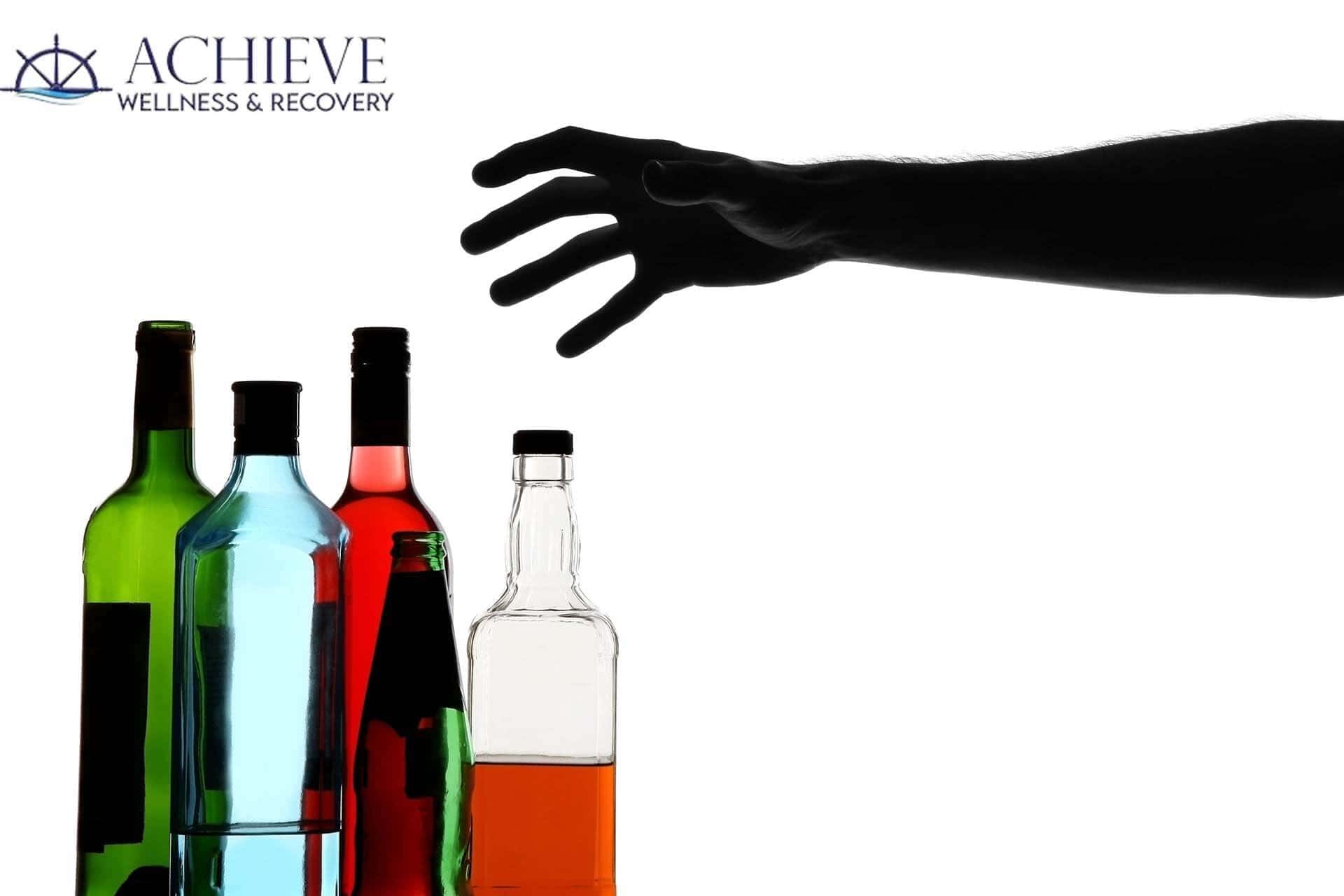
Your journey doesn’t end with rehab. Achieve Wellness and Recovery provides comprehensive aftercare planning to ensure a smooth transition back into daily life, with ongoing support and resources.
Sober Living

Sober living, also known as a sober living home or halfway house, is a transitional housing arrangement designed to support individuals in early recovery. It provides a structured and supportive environment for individuals who have completed a primary addiction treatment program, and are working toward achieving and maintaining long-term sobriety.
It’s important to note that sober living is not a substitute for addiction treatment but rather a complementary and supportive component of the recovery process.
Find Healing at a Top-Rated Treatment Facility in New Jersey

When you choose Achieve Wellness and Recovery, you gain access to various treatment programs tailored to your unique needs. Whether you’re considering outpatient treatment, inpatient rehab, or outpatient programs, we have a solution that fits your circumstances. If you are considering entering a treatment center in New Jersey, call us today to get started: (833) 680-0142.
We work with most insurance companies. Please note we are not affiliated with or endorsed by insurance companies.
No Medicaid Accepted.

Medically Reviewed By
Nicole Rettino-Lambert LCSW, LCADC, CCS, CCTP, CSTIP
Nicole Rettino-Lambert is a dually licensed clinician with over 20 years of experience working with children, adolescents, and adults in both addiction treatment and mental health treatment. Along with extensive experience in clinical work, she has held leadership roles in both inpatient and outpatient addiction treatments centers in New Jersey. Throughout her various leadership positions, Rettino-Lambert has developed clinical programming, assisted staff in their growth and development in the clinical field, and had the privilege of helping numerous individuals on their path to recovery.
As a clinician, Rettino-Lambert specializes in addiction trauma, mental health, self-harm behaviors, anxiety, intimacy issues, sex addiction, and personality disorders. She holds certifications as a clinical trauma professional and sex informed professional. Her passion and purpose as a clinician are to help individuals find their voice, purpose, and motivation through their recovery. She takes pride in being part of the process that helps those who are fighting for their lives to achieve both sobriety and wellness.In her role as a Clinical Director at Achieve Wellness and Recovery, Rettino-Lambert works tirelessly to ensure that her staff feels supported in their roles, continues their clinical growth and development, and is empowered to become the best versions of themselves. She firmly believes that all the staff are an essential part of clients’ recovery journey and that they deserve continuous compassion, empathy, acknowledgment, and support from leadership.





